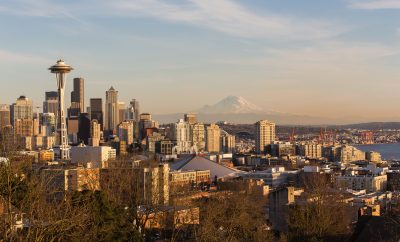
News
Why Conservatives & Liberals Are Both Wrong About Minimum Wage
Recently, I have noticed with the talk of 2014 midterm elections, articles about minimum wage are starting to pop up more in my daily reading. The problem with these articles (one, two, and three) is no one completely gets the argument right. The problem is not that that the wealthy made more money, but that the rate at which they are making more money is increasing more quickly compared to other groups. Between 1979-2007, the ‘99%’ saw a 53% change in comprehensive income, while the top ‘1%’ had a 314% increase. The concern surrounding this trend has given rise to the hot political debate of a suggested federal minimum wage increase to $10.10. But, as we continue to discuss the validity of minimum wage legislation, we need to be clear on its effectiveness, purpose, and discuss more powerful alternatives like unionization and collective bargaining.
Why Conservatives Are Wrong About the Minimum Wage
There is a very popular myth among conservatives that the minimum wage always hurts job growth and in fact leads to a decrease in available jobs. We need to realize that this not always the case, and in fact, significant amount of data suggests that increasing the minimum wage is a very practical thing to do because it provides needed benefits to workers with zero impact on employment levels. According to Madland and Bunker at the Center for American Progress, “at least five different academic studies focusing on increases to the minimum wage… find an increase in the minimum wage has no significant effect on employment levels.” People often forget that an increase in the minimum wage does have benefits, and it seems these benefits prove to be very effective and helpful during times of high unemployment. A minimum wage increase results in ‘boosts in demand and reduction in turnover’.
Contrary to conservative doctrine, it is actually the consumer that keeps the economy going. This is for two reasons. First, when more people are buying products the economy grows faster. Second, people with less money, spend more money. Director of the CBO Doug Elmendorf notes that “increases in disposable income are likely to boost purchases more for lower-income than for higher-income households,” thus a minimum wage increase provides more money for these families and that results in more spending which boosts demand.
Turnover refers to the process of workers quitting and companies having to re-hire and re-train new employees, thus high levels of turnover create a very inefficient system. Some companies, such as Costco, have implemented ‘efficiency wages’ to avoid high turn-over among workers. Costco pays its employees $15.60 per hour, which is significantly over the minimum wage. Their philosophy is that a higher wage will yield more productivity with less turnover and retention of good workers. This model has been extremely successful. Consider their numbers in comparison to Wal-Mart, which pursues the path of cheap labor.
Why Liberals Are Wrong About the Minimum Wage
What we need to understand is that liberals have two goals in mind with the minimum wage. The first is to create a level of income that constitutes a living wage. The second, and more philosophical reason, has to do with establishing a sense of equity in society. The United States is currently the third most unequal society among OECD nations. We have extremely low social and economic mobility, which means that the likelihood of someone moving from a low-income status to the middle class or from the middle class to a high-income status is extremely unlikely. I suggest that the protection and promotion of unions would be a more efficient policy for achieving both of the liberal’s goals — helping workers obtain a living wage and instilling equity in our society.
Unions and Living Wages
We find that unions, like the minimum wage, are effective in helping ensure workers are making a living wage. Lawrence Mishel and Matthew Walters of the Economic Policy Institute, complete a thorough analysis of data sets, and conclude that “unions raise wages of unionized workers by roughly 20%.” However, one of the advantages of unions over the minimum wage, is that unions do more than just help provide workers with better compensation. Unionized workers are much more likely to receive benefits that many would consider fundamental to a stable economic status. Mishel and Walters also point out that
Unionized workers are more likely than their nonunionized counterparts to receive paid leave, are approximately 18% to 28% more likely to have employer-provided health insurance, and are 23% to 54% more likely to be in employer-provided pension plans.
These benefits are not included in a minimum wage increase, yet they are extremely important to helping people stay at the ‘living wage’ threshold. It used to be the case that a majority firms offered employer-based health insurance. However, over the last thirty years, the number of firms offering this benefit has been on the decline along with the presence of unions in the labor market. Since it was the strong unionized labor force the procured benefits like employer-provided health insurance in the first place, it shouldn’t be a surprise that as unions have decreased so have worker benefits.
Unions and Equity
Liberals support minimum wage legislation also to establish a sense of equity in society. This goal will not be achieved through a minimum wage increase, and in fact, supporting an increase may be further perpetuating a system of inequality. In Why Nations Fail, M.I.T. economist Daron Acemoglu and the Harvard political scientist James A. Robinson provide an account of what factors contribute to the constitution of a successful and flourishing nation. New York Times columnist Thomas Friedman does a nice job of summarizing the main thesis of the book, “nations thrive when they develop ‘inclusive’ political and economic institutions, and they fail when those institutions become ‘extractive’ and concentrate power and opportunity in the hands of only a few. The important thing is that you need to have both a politically and economically inclusive system, because they depend on each other. Without one, you will lose the other, and that in turn creates a downward spiral into collapse and failure.
What does this have to do with Unions? My contention is this: the best way to ensure that the people experience political and economic inclusivity is through the presence of unions and collective bargaining in the work force.
We have already seen that unions are effective at improving the economic well-being of its members. However, members of society still need political inclusivity. Interestingly, in their conclusion, Mishel and Walters make an important observation, namely that, “unions enable due process in the workplace and facilitate a strong worker voice in the broader community and in politics.” Unlike an increase in the minimum wage, an increase in unionization can help citizens improve their political standing along with their economic position.
Citizen’s United
It is quite clear that we have become a very economic exclusive society with extreme income inequality, relatively high-poverty, and an low social mobility.
When it comes to the status of political inclusivity, things are a little more gray. It would seem that the US must be politically inclusive because it is a democratic-republic and everybody has the right to vote for elected leaders. However, the rise of big-money in politics has greatly changed the political landscape. In the current system corporations have the right to spend money on political campaigns, so companies like Bank of America and Goldman Sach’s donating over a million dollars to political campaigns through Super PACs. These extremely large donations allow significant access to the candidate, and a platform to communicate what they would like to see from their candidate while in office.
Low income and middle class citizens are losing political power, because their one vote is not as valuable as a million dollars in campaign financing, and unfortunately, it seems there is no solution to this problem except for reversing Citizen’s United, which is not a promising outlook.
If this problem cannot be fixed directly through the political sector, maybe it can be solved through unionization. Collective bargaining is a form of political power. Unions have a history of being key players in political movements such as the struggle for civil rights, the fight for Fair Employment Practices Commission, the Montgomery Bus Boycott, etc.
If conservatives and liberals really are interested into making the United States a thriving democracy, we really need to rethink our attitude towards Unions. They may be our best option for preserving and restoring economic and political inclusion which are fundamental components of a successful society.
[EPI] [NY Times] [OpenSecrets] [CBPP] [EPI – Mishel]
—
Bo Donoghue
Featured Image Courtesy of [Flickr/401(K) 2012]








Comments